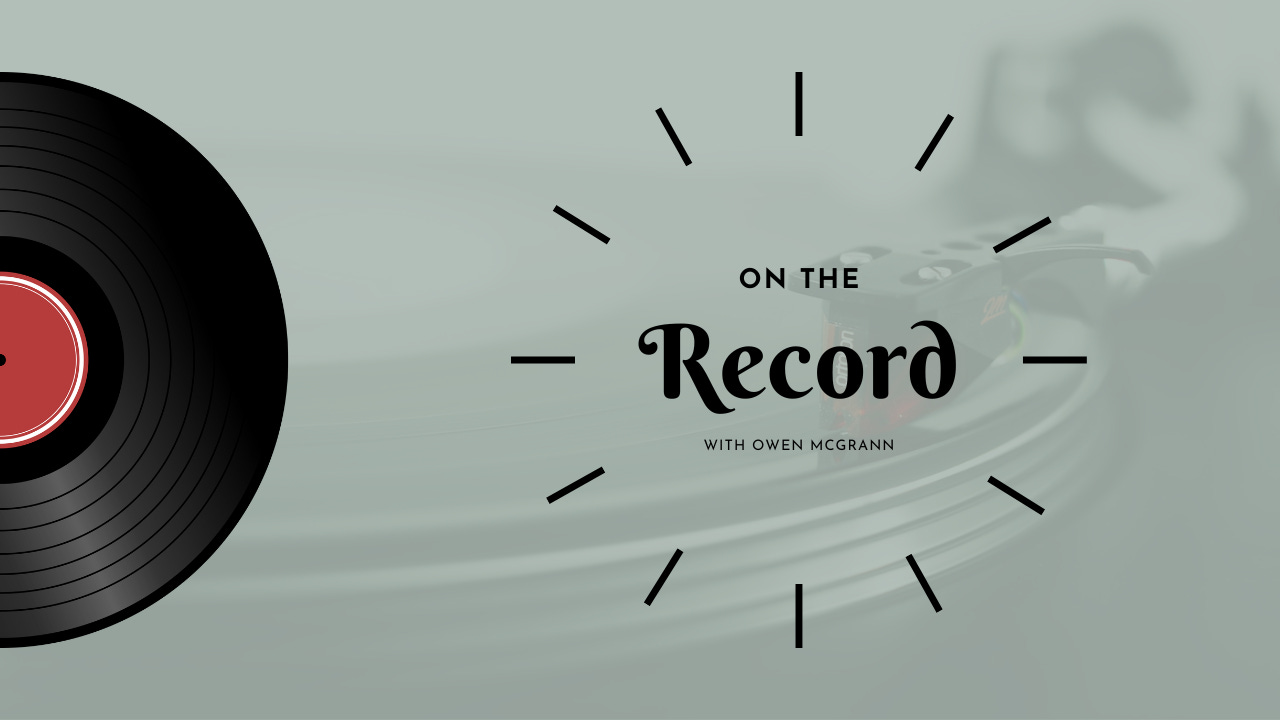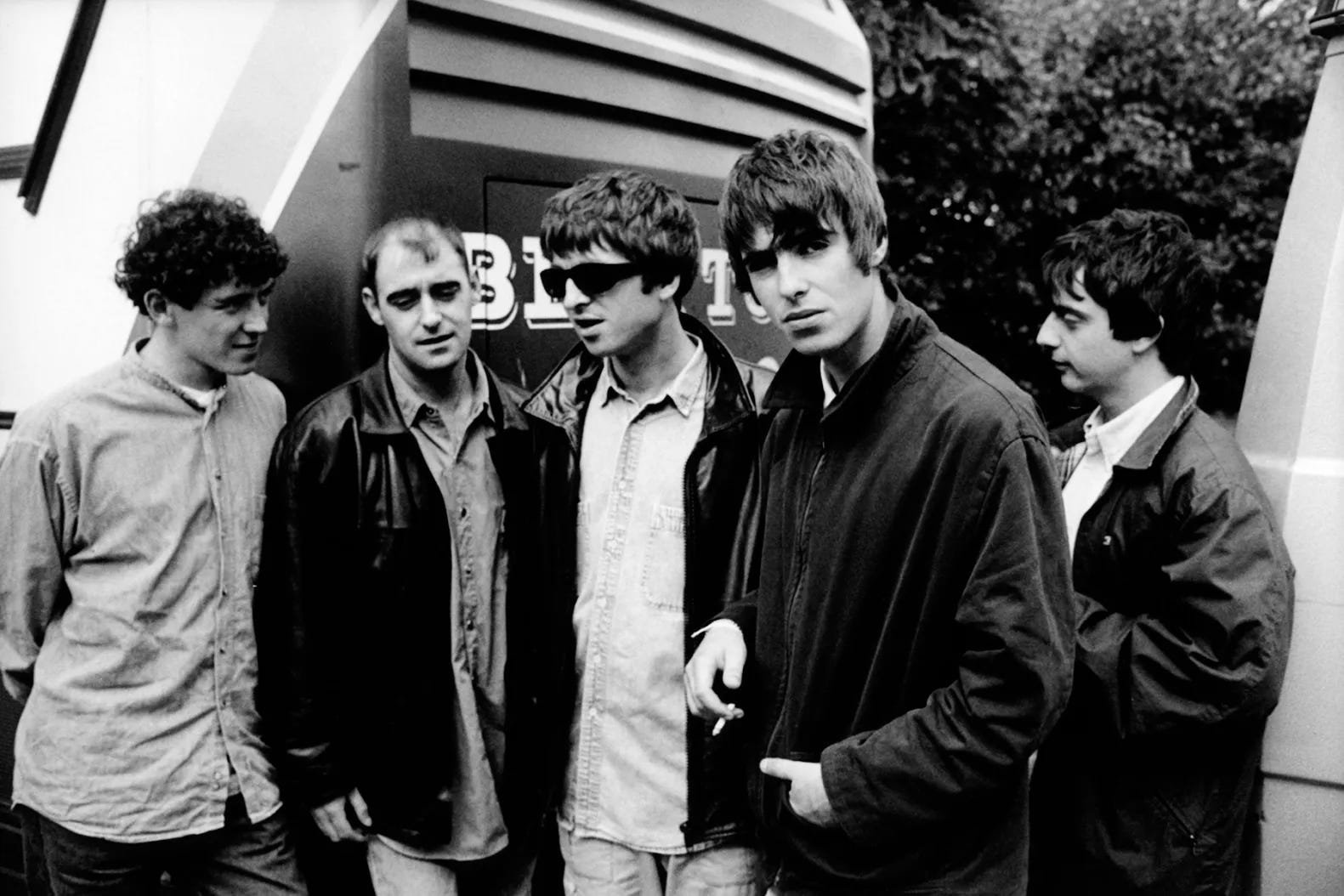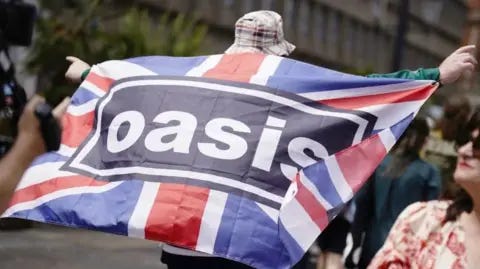Saturdays used to mean an On the Record in your inbox. After a break to focus on my novel Pennhollow, I’m bringing it back—now as a monthly dispatch. For new subscribers, OTR is an exploration of music and life.
I want to discuss how things were. Or rather, how we think they were—and how we unconsciously rewrite our memories to fit the stories we need to tell ourselves. We are living through a moment awash in nostalgia. (We are always in such moments, but this moment is acute.) We’re hard at work making things great again. Reliving past glories. Imagining that literature, movies, music, politics, life—that they were all somehow better, and that the way forward is backward.
Over the past few weeks, I’ve found myself caught up in a strong wave of yearning for a moment in my past. No, not a moment. A feeling from my childhood. As Oasis and the Brothers Gallagher retook the stage, reunited to rip through a two-plus hour setlist of straight bangers, I felt an inescapable wave of wanting the time back. Wanting to feel that rush in 1994 when I first heard “Slide Away” and rushed to Borders to get Definitely Maybe, holing myself up in my room and listening to the thing on repeat. Deciding that very day that I had to learn to play guitar because whatever this was, I had to know how to do it.
I managed to cajole my mom into buying me a guitar. Learning to play an instrument is good for kids! It helps with learning and brain function! Give me those six strings so I can make the thing growl and scream.
I was sitting alone in my parents’ basement on the Fourth of July, trying to insulate my poor dog from the incessant shelling the suburbs of Pittsburgh were taking, when video of Oasis’s first reunion show began percolating onto the net. I was unprepared for the wave of emotion that overtook me. They sounded way better than I would have expected. Liam’s voice was fresh, clean. Noel was on form. Bonehead was back! I felt like I’d been transported back twenty-five years.
You see, Oasis was my first love. There was a period when I was hesitant to own up to that. Huge band. Simple songs. Massive choruses. Unsophisticated lads. That was the standard take, at least here in the U.S. I had moved on to Dismemberment Plan and Talking Heads, gotten hooked on bop and hip hop. Oasis was passé.
And yet. I heard the clip of the band playing “Acquiesce” in Cardiff, transitioning from Liam’s swaggering verses to Noel’s towering chorus—and there is no denying it. Resistance is futile.
I’ve seen Oasis about twenty times, mostly from 1996 through 2004 or so. I managed to see them despite having no money. Now that I have disposable income, I can’t get tickets to their reunion shows to save my life.
I’m a bit perplexed why it means so much to me, this nostalgia, this yearning to partake in something that is, at root, itself premised on a wave of nostalgia for a moment that was built on nostalgia—and perhaps something even more complicated than that.
Generally, around here, I’d post a photo of my record player with the record cover. But this isn’t a normal Saturday. I don’t have access to my record player. I’m basically living in my office because my son got his one-year vaccinations and I’m immunocompromised. Instead, I’m listening to (WTS)MG through headphones on Tidal, sitting alone and feeling pretty isolated.
“Some Might Say” just came on and I’m struck by how different it sounds from the rest of the album. I love the melody of the chorus, soaring over the D-G-Em-G progression. But everything about the recording of the song sounds off. There’s a reason for that: the song was the first single off the album and was recorded before Noel finally lost it and fired original drummer Tony McCarroll. The drums sound starkly different, as does the guitar tone—it’s thinner, more trebly than the rest of the album. They left it on the album because the lawyers said they couldn’t advertise the album as having the “Number 1 Single” if they re-recorded it.
Listening back to the album, I think I still remember how to play every last note. I genuinely think I could pick up a guitar and play the album straight through, part by part, even though I haven’t played any of the songs, probably, in twenty years.
All of this to say, I have much to say about the album itself, but that’s not what interests me at the moment, so I beg your forgiveness when I say: this is a great album and you should go listen to it with fresh ears.
Now, let’s talk about more pressing concerns.
Oasis were, along with Blur, the face of Britpop. I’ve always hated that term: neither Oasis nor Blur were pop bands. Go listen to “Bring it on Down” and tell me Oasis is a pop band. In the 1990s, they led a revival of British pride and culture. After the dour years of Thatcher and Major, it the UK suddenly became cool again.
Cool Britannia.
Oasis and a bunch of the bands of the era consciously adopted a retro British Invasion sound. Noel was notorious for borrowing licks and melodies from the Beatles, Stones, and…Stevie Wonder.1 The band adopted the Union Jack as a symbol. Even Noel’s signature guitar is painted as the Union Jack. Hell, this is standard merch for the reunion tour.
So here we are, in 2025 reliving the glory of an English band who brought past musical glory back in the 90s. A band who gave not just one generation a soundtrack of anthems that take over pubs when they hit, but songs that have become so engrained in the national culture that they’ve transcended generations. Gen Z are mad fer it too.
And here’s where national stories, our collective imaginations, and nostalgia can be problematic. All of the above is taken as truth. Oasis gave Britain reason to be proud again, brought together the underclass and provided reason to go on. Tony fucking Blair rode to 10 Downing Street on Oasis’s coattails.
The great English musical act.
Except they’re Irish.
They’re not English at all. Every original member of the band were born to Irish immigrants. Look at their last names: Gallagher, McGuigan, McCarroll, Arthurs. All of them had Irish mams, spent summers in Ireland. The Gallaghers are as much of County Mayo as of Manchester.
What are we to make of this? Our lust after a past that we are making up in real time, that itself was made up of half-remembered and curated history itself? We're not just nostalgic for a past that never existed—we're nostalgic for a story that was already nostalgic, already a construction. The 90s Britpop moment was itself an attempt to recapture the 60s British Invasion, and both were built on selective memory and strategic forgetting. That may sound like relativism, but it isn’t. I’m not saying the past is unknowable—I’m saying it’s always being shaped by what we need from it.
We create meaning and belonging, we don’t find it.
This is an anthropological reality, not an epistemological sentence. The question is what it is that we are creating, who is accepted into the circle of belonging. We narrow and expand our notion of these groups—nations, peoples, fans, cultures—and we pretend as though our creations are natural. They are not.
And so, I leave you with a song about disappearing under the weight of things, sung by the most English of bands, comprised of a bunch of Irishmen. Turtles all the way down.
Here's a thought for every man
Who tries to understand what is in his hands (what's in his hands)
He walks along the open road of love and life
Surviving if he can (surviving if he can)Bound with all the weight of all the words he tried to say
Chained to all the places that he never wished to stay
Bound with all the weight of all the words he tried to say
As he faced the sun he cast no shadowAs they took his soul they stole his pride
As they took his soul they stole his pride
As they took his soul they stole his pride
As he faced the sun he cast no shadow
“Step Out,” a B side to “Don’t Look Back In Anger” was originally going to be on the album (rather than one of the two “Swamp Song” interludes), but the song was close enough to “Uptight” that Stevie won the rights. Noel again nodded to Stevie in “Keep on Reaching” on his High Flying Birds’ album Who Built the Moon?






“We create meaning and belonging, we don’t find it.”
Same thing with happiness. You can search as long as you want, but you aren’t going to find happiness. It’s not something you come across like a buried treasure. Happiness comes from inside. It is a state of being. You have to BE happy to be happy. As it is with meaning and belonging.
I’m not exactly sure we have such trouble with this, why we keep looking externally for things. Maybe part of it is fear — we are afraid of what we might find if we take a peek inside our own dark corners. And maybe it is our predilection for action. As long as we are doing something, we feel we are making progress. Seeking meaning/belonging/happiness/whatever-we’re-missing allows us to check off boxes. Sitting with ourselves, being in our head, doesn’t feel like we are doing anything.
Plus, of course, coming across a treasure chest filled with our meaning, or happiness, is a lot easier than having to create it ourselves. Why put in the work to make a million dollars when I can buy a lottery ticket and try to win it?
Studies have shown that people engage in nostalgia as means to boost their mood, self-esteem, and self-confidence, most often when feeling depressed vs. happy. Is it any surprise, then, that the focus on nostalgia has been so prevalent the last decade?